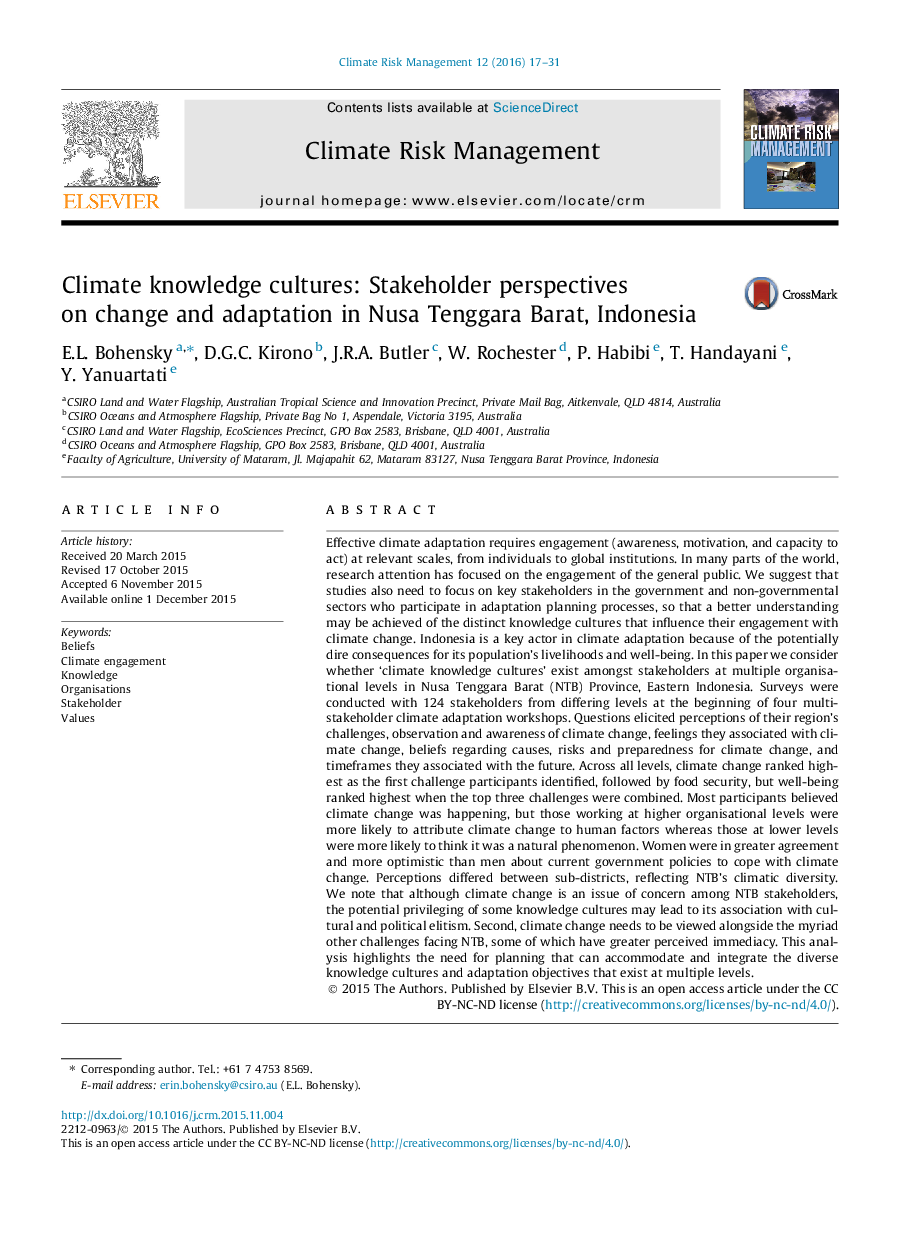| کد مقاله | کد نشریه | سال انتشار | مقاله انگلیسی | نسخه تمام متن |
|---|---|---|---|---|
| 1051192 | 1484880 | 2016 | 15 صفحه PDF | دانلود رایگان |
Effective climate adaptation requires engagement (awareness, motivation, and capacity to act) at relevant scales, from individuals to global institutions. In many parts of the world, research attention has focused on the engagement of the general public. We suggest that studies also need to focus on key stakeholders in the government and non-governmental sectors who participate in adaptation planning processes, so that a better understanding may be achieved of the distinct knowledge cultures that influence their engagement with climate change. Indonesia is a key actor in climate adaptation because of the potentially dire consequences for its population’s livelihoods and well-being. In this paper we consider whether ‘climate knowledge cultures’ exist amongst stakeholders at multiple organisational levels in Nusa Tenggara Barat (NTB) Province, Eastern Indonesia. Surveys were conducted with 124 stakeholders from differing levels at the beginning of four multi-stakeholder climate adaptation workshops. Questions elicited perceptions of their region’s challenges, observation and awareness of climate change, feelings they associated with climate change, beliefs regarding causes, risks and preparedness for climate change, and timeframes they associated with the future. Across all levels, climate change ranked highest as the first challenge participants identified, followed by food security, but well-being ranked highest when the top three challenges were combined. Most participants believed climate change was happening, but those working at higher organisational levels were more likely to attribute climate change to human factors whereas those at lower levels were more likely to think it was a natural phenomenon. Women were in greater agreement and more optimistic than men about current government policies to cope with climate change. Perceptions differed between sub-districts, reflecting NTB’s climatic diversity. We note that although climate change is an issue of concern among NTB stakeholders, the potential privileging of some knowledge cultures may lead to its association with cultural and political elitism. Second, climate change needs to be viewed alongside the myriad other challenges facing NTB, some of which have greater perceived immediacy. This analysis highlights the need for planning that can accommodate and integrate the diverse knowledge cultures and adaptation objectives that exist at multiple levels.
Journal: Climate Risk Management - Volume 12, 2016, Pages 17–31
